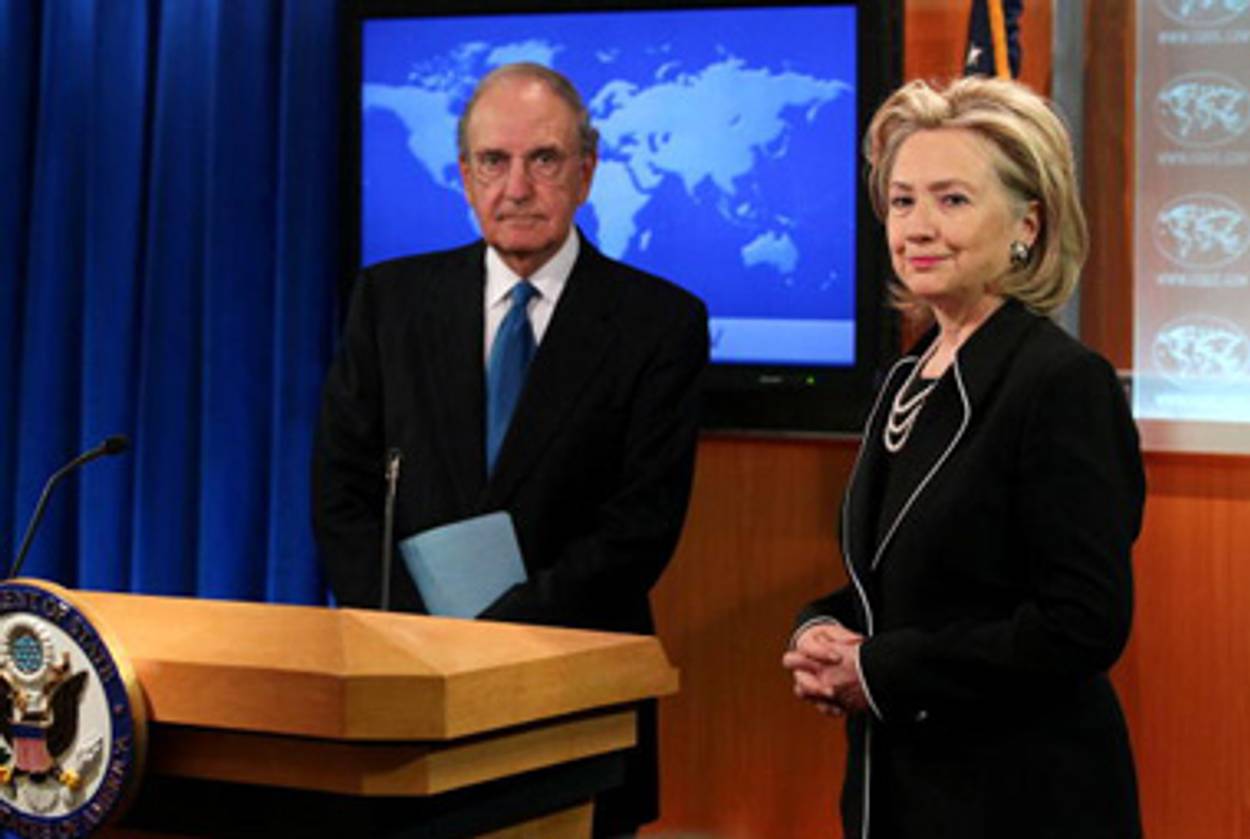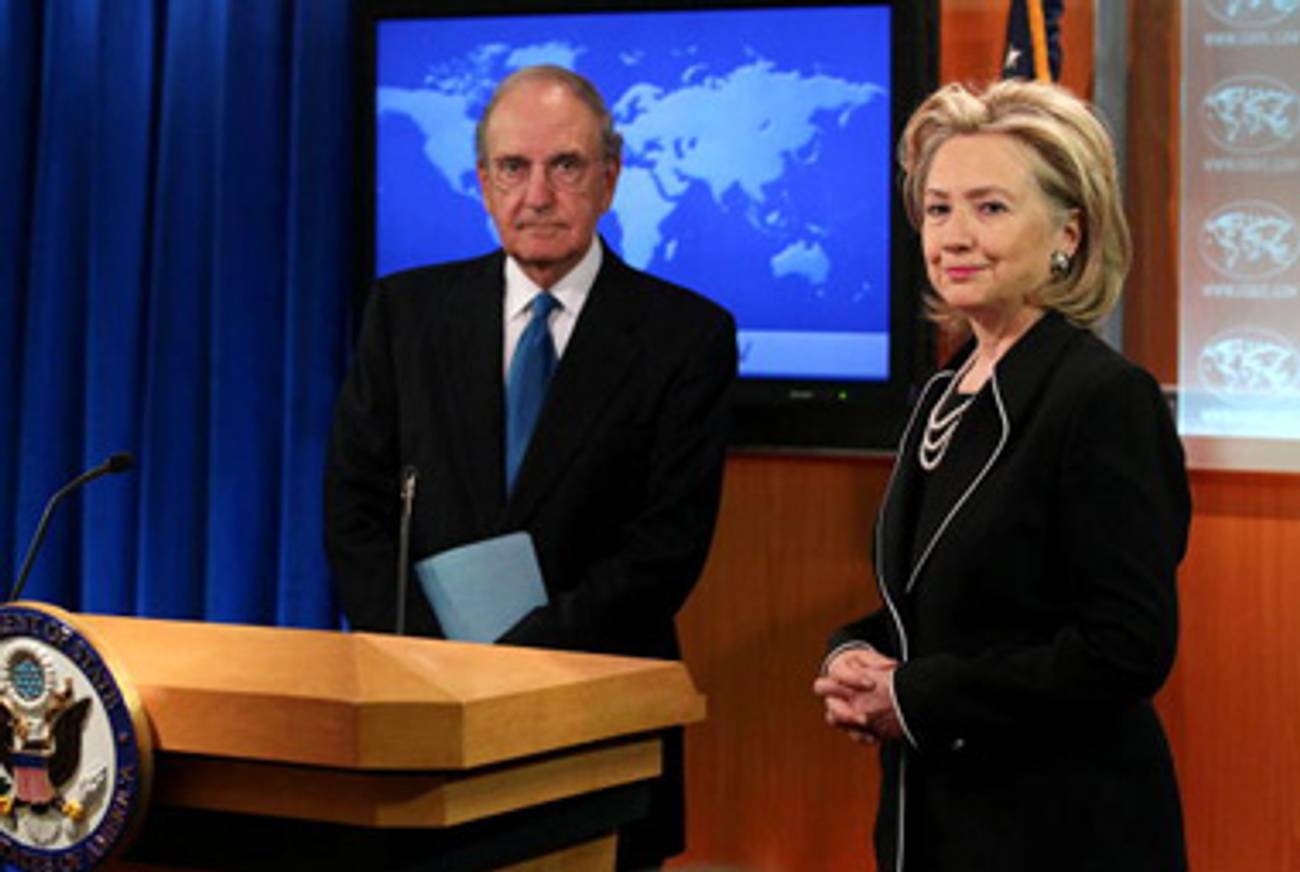Direct Talks, Next Month
What they’ll talk about when they talk about peace




Few issues more reliably provoke cynicism than the Mideast peace process. After Secretary of State Hillary Clinton announced last Friday afternoon—yes, a Friday afternoon in August; a few of the least paid-attention-to hours in the entire year—that direct talks between Prime Minister Netanyahu and President Abbas would take place in Washington, D.C., beginning on September 2, with the goal of reaching a comprehensive deal within one year (!), it did not take long for most commentators to respond with, as New York Times Jerusalem Bureau Chief Ethan Bronner put it, “an almost audible shrug.” And that’s if the talks happen! Abbas said yesterday that he would not abide them if the West Bank construction freeze—currently scheduled to expire in the final week of September—is not extended.
Which is a good segue to the causes behind the cynicism. Chiefly, it is this: Right now, it is very near impossible to conceive of a deal that would both contain all the usual Israeli demands—no right of return, of course, but also at the very least land-swaps, potentially East Jerusalem, and, according to Netanyahu yesterday, a demilitarized Palestinian state—and be something that Abbas, who is old (and sick ?) and whose Fatah party can barely hang onto power as it is, could sign without prompting a popular reaction in which the more radical elements of Palestinian society (see: Hamas) are put in a good position to take over; which is something in turn that Israel and its American sponsors will justifiably not permit.
Bronner describes the pairing of “the unwilling with the unable,” which is arguably unfair to Netanyahu—much of what he is “unwilling” to do, the vast majority of Israelis are “unwilling” to do (allow the right of return for Palestinian refugees, for example). And while George Will gives the Palestinians less credit than I would, the lesson he draws from the 2005 Gaza withdrawal—“Now Israel has on its western border, 44 miles from Tel Aviv, an entity dedicated to Israel’s destruction, collaborative with Iran and possessing a huge arsenal of rockets”—is common sense. (Incidentally, what place will Gaza have in these talks? Good question!)
So despite all of this, why are talks planned? Abbas seems to have been pressured, and if he can portray his cooperation as leading to concessions—an extension of the construction freeze, for example—that helps keep him in power. Netanyahu is arguably the real victor: He gets to appear the benevolent peacemaker under terms that won’t rock the boat of his coalition, much of which is even more right-wing than he is. As for President Obama, by giving Bibi much of what he wants, he hopefully gains a modicum of leverage over him. It’s the Holy Land. Anything is possible.
In Mideast Talks, Scant Hopes From the Beginning [NYT]
Mideast Talks Offer Promise, Peril for Obama [Politico]
Marc Tracy is a staff writer at The New Republic, and was previously a staff writer at Tablet. He tweets @marcatracy.